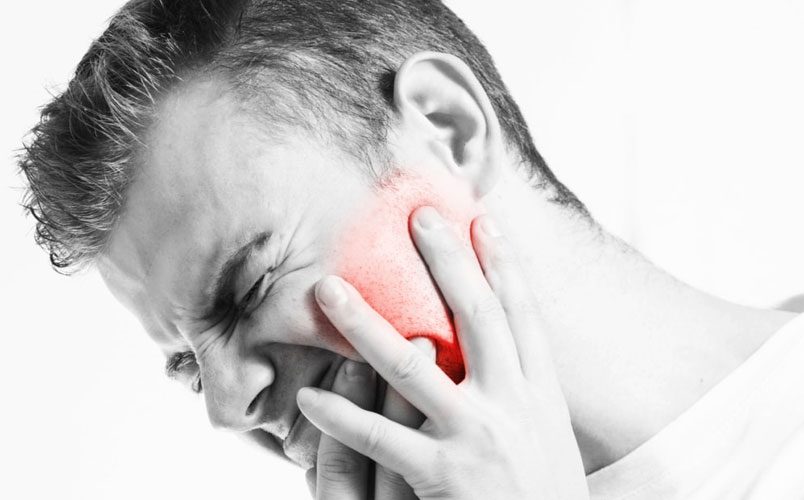Jaw Pain in Hamilton
Jaw pain is a common ailment that can affect individuals of all ages. It can range from mild discomfort to severe pain, significantly impacting daily activities such as eating, speaking, and even sleeping. Understanding the causes, symptoms, and management options for jaw pain is essential for anyone experiencing this condition.
Understanding Jaw Pain
Jaw pain can occur in various forms, including pain in the jaw joint (temporomandibular joint or TMJ), discomfort in the surrounding muscles, or referred pain from other areas such as the teeth or neck. The jaw plays a crucial role in essential functions like chewing and speaking, making any pain in this area particularly disruptive.
Common Causes of Jaw Pain
Several factors can contribute to jaw pain, including:
- Temporomandibular Joint Disorders (TMJ): TMJ disorders are among the most common causes of jaw pain. They can arise from various factors, including jaw injuries, arthritis, teeth grinding (bruxism), or misalignment of the jaw. TMJ disorders often lead to pain in the jaw joint, difficulty opening or closing the mouth, and clicking or popping sounds when moving the jaw.
- Dental Issues: Tooth infections, abscesses, or impacted wisdom teeth can cause significant pain in the jaw area. These dental problems may lead to inflammation and discomfort that can radiate to the jaw.
- Muscle Strain: Overuse of the jaw muscles, whether due to grinding teeth or excessive chewing, can result in muscle strain. This strain can lead to soreness and stiffness in the jaw, making movement painful.
- Injuries: Trauma to the jaw, such as fractures or dislocations, can cause acute pain and swelling. Sports injuries or accidents can lead to significant discomfort and may require immediate medical attention.
- Sinusitis: Inflammation of the sinuses can lead to referred pain in the jaw area. Sinus infections can cause pressure and discomfort that mimic jaw pain.
- Arthritis: Conditions such as osteoarthritis or rheumatoid arthritis can affect the TMJ, leading to pain, swelling, and reduced mobility in the jaw.
Symptoms of Jaw Pain
Recognizing the symptoms associated with jaw pain is crucial for effective management. Common symptoms include:
- Localized Pain: Pain may be felt directly in the jaw joint or in the surrounding muscles.
- Stiffness: Many individuals experience stiffness in the jaw, making it challenging to open or close the mouth fully.
- Clicking or Popping Sounds: Those with TMJ disorders often notice audible sounds when moving their jaw, especially when opening wide.
- Headaches: Jaw pain can sometimes lead to tension headaches, especially if the pain is related to muscle strain.
- Ear Pain: Due to the proximity of the jaw joint to the ear, individuals may experience earaches or a sensation of fullness in the ear.
- Difficulty Chewing or Speaking: Pain or discomfort may make it difficult to chew food or speak without discomfort.
Management Strategies for Jaw Pain
Managing jaw pain involves a combination of self-care practices, lifestyle changes, and professional interventions. Here are some effective approaches:
1. Rest and Relaxation
Taking breaks from activities that strain the jaw, such as chewing gum or clenching teeth, is essential. Allowing the jaw to rest can help alleviate pain.
2. Heat and Ice Therapy
Applying a warm compress to the jaw can help relax the muscles, while ice packs can reduce inflammation and numb acute pain. Alternate between heat and ice to find relief.
3. Over-the-Counter Pain Relievers
Non-steroidal anti-inflammatory drugs (NSAIDs), such as ibuprofen or acetaminophen, can help manage pain and reduce inflammation.
4. Stress Management
Since jaw pain can be exacerbated by stress and teeth grinding, incorporating relaxation techniques such as deep breathing, meditation, or yoga can be beneficial.
5. Physical Therapy
Working with a physical therapist can provide targeted exercises to strengthen jaw muscles and improve mobility. They may also use modalities to alleviate pain and tension.
6. Avoid Hard Foods
Opt for softer foods to reduce strain on the jaw while it heals. Avoid chewing gum and hard, crunchy foods that may exacerbate discomfort.
7. Night Guards
For individuals who grind their teeth at night, wearing a night guard can protect the teeth and reduce strain on the jaw.
When to Seek Help
If jaw pain is accompanied by severe symptoms such as swelling, fever, or difficulty swallowing, it is crucial to seek medical attention promptly. Early intervention can help address underlying conditions and prevent complications.
Emotional Impact of Jaw Pain
Chronic jaw pain can affect emotional well-being, leading to frustration, anxiety, or depression. It may limit social interactions and enjoyment of meals, impacting overall quality of life. Seeking support from healthcare professionals and engaging in activities that promote mental well-being can be beneficial.
Final Thoughts
Jaw pain is a common issue that can significantly impact daily activities and overall quality of life. Understanding the causes, recognizing symptoms, and implementing effective management strategies can help alleviate discomfort and restore function. If you are experiencing jaw pain, consulting a healthcare provider can provide the guidance needed for effective management and recovery.
Our Conditions
- Repetitive Strains and Sprains
- Arthritis
- Back & Hip Pain
- Whiplash
- Postural Correction Exercises
- Working from Home
- Strength & Flexibility Instruction
- Functional Training
- Home Rehabilitation Exercises
- Hip Fractures
- Meniscus Pain
- Hip & Knee Replacement
- Chronic Arthritis
- Pre/Post Knee Surgery
- Chronic Inflammation
- Orthotics & Orthopaedic Footwear
- Diabetic Foot Care
- Knee, Hip and Hand Arthritis
- Back Pain/Sciatica
- Depression
- Fatigue
- Reduced Focus or Concentration
- Nausea and/or Vomiting
- Imbalance
- Visual Disturbance
- Dizziness
- Vertigo
- Dysfunctional Voiding Habits
- Fecal Incontinence
- Day & Night Time Incontinence
- Bed Wetting
- Pain During or Following Intercourse
- Bowel Issues (Constipation, Straining or Pain)
- Urinary Frequency and/or Urgency
- Incontinence (Leakage)
- Pregnancy & Post-Natal
- Swollen Joints and Muscles
- Carpal Tunnel
- Muscle Pain and Spasms
- Poor Circulation
- Laboured Breathing
- Feet Pain
- Jaw Pain
- Back and Neck Pain
- Headaches
- Rehabilitation Centre
- Sport and Workplace Injuries
- Catastrophic Injury
- Fractures
Our Clinic Hours
Monday: 9.00 AM - 06.30 PM
Tuesday: Closed
Wednesday: 9.00 AM - 06.30 PM
Thursday: 9.00 AM - 06.30 PM
Friday: 9.00 AM - 06.30 PM
Saturday: 10.00 AM - 05.30 PM
Sunday: Closed
Quick Email

We are helping you stand out from the crowd
info@greenhillphysio.ca

















































